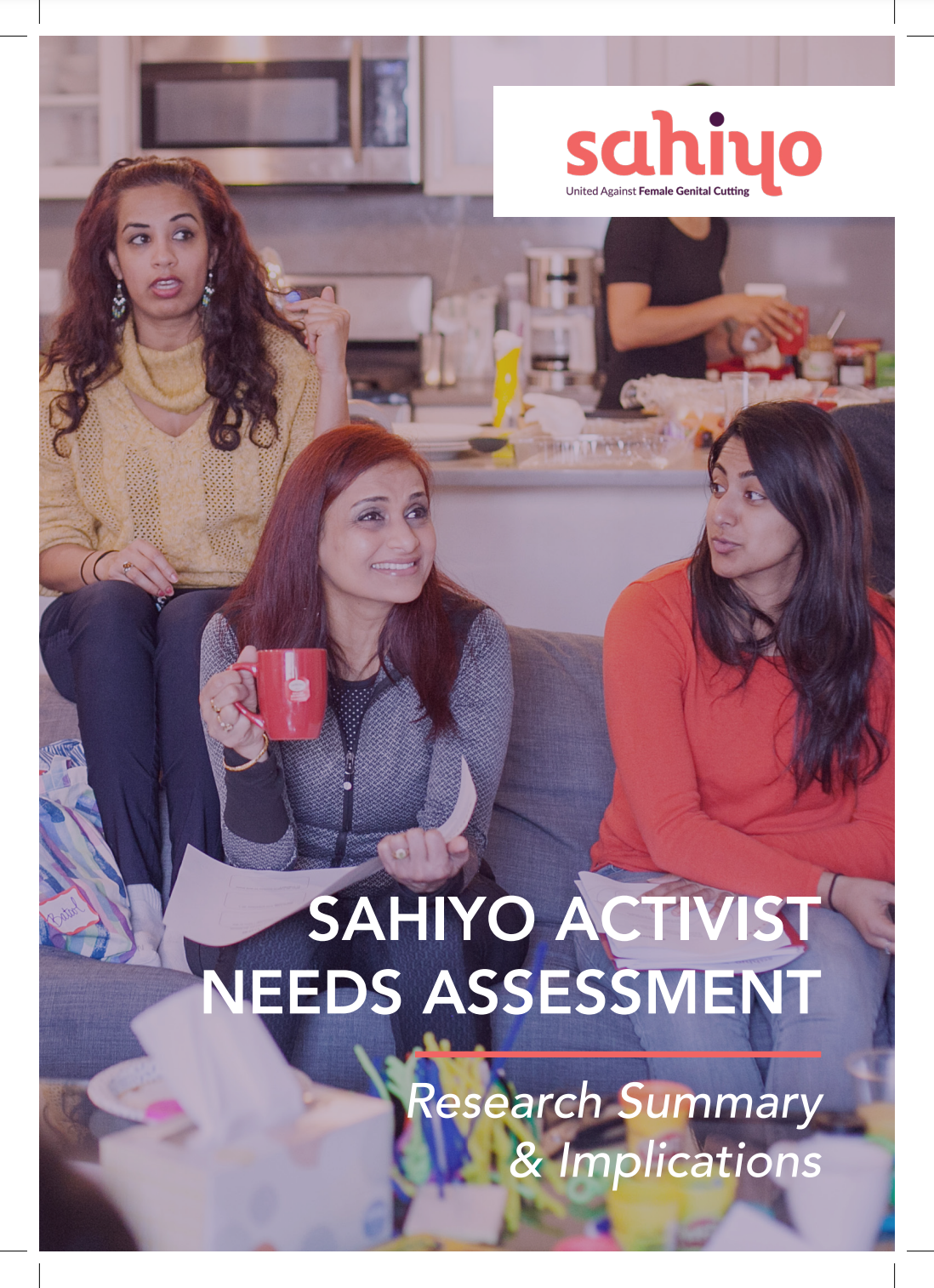Research
Research is critical to understanding the prevalence and impact of FGC as well as how to engage in programs and methods to end it. Sahiyo conducts innovative research to bridge the gap in data that exists on FGC globally, and to bring understanding, awareness, and advocacy to the topic of FGC within Asian and other communities.
Sahiyo’s Original Research
Since our inception, two major studies Sahiyo has engaged in include the first-ever global study on FGC in the Dawoodi Bohra community, which surveyed over 384 Bohra women and found that 80% of women had been cut; and a Needs Assessment surveying activists from within the Bohra community on how to better support them.
In 2017, Sahiyo also investigated and revealed that FGC is being practiced in parts of southern India’s Kerala state. This countered the previous assumption that in India, FGC is practiced only by Bohras.
Sahiyo recently published the third and final report from the Critical Intersections Research Project, which explores the intersection between FGC and other forms of oppression such as racism, Islamophobia, transphobia, and gender discrimination. This research also examines potential opportunities for cross-collaboration with other sectors and social justice movements.
In July 2021, Sahiyo hosted a webinar Critical Intersections: Anti-Racism and Female Genital Mutilation/Cutting (FGM/C). We invited anti-FGM/C activists to engage in a conversation that helped to elevate our understanding of how systems of racism operate in—and negatively impact—the movement to end FGM/C.
Using the momentum gathered from the webinar, Sahiyo initiated the Critical Intersections Research Project, beginning with an examination of how FGM/C is viewed to intersect with other social oppressions as found in academic journals, media, social media, video clips, etc. From there, a mixed-methods research design was developed, including a survey and interview, to better understand the following research questions:
- How has systemic racism delayed substantial change on this issue of meeting progress toward achieving the U.N. Sustainable Development Goal (SDG) to end FGM/C by 2030?
- Are there possible connections to other movements such as MeToo and Black Lives Matter that can come into play?
Upon initiating this project, Sahiyo discovered that in addition to systemic racism, several other factors of the human experience intersect with FGM/C to tell a larger story of critical intersections. Therefore, we expanded on our initial project aims.
The goals of Sahiyo’s research are to:
- Create a foundation for further research into the locally-specific confluence of factors that have significant implications for the holistic well-being of marginalized communities affected by FGM/C.
- Illuminate possibilities for creating ties between social reform and social justice movements that may accelerate change.
Learn more about the Examining Intersections Between FGM/C and other Social Oppressions Research Project.
Student Research Partnerships
Additionally, Sahiyo supports undergraduate and graduate students in conducting research to contribute to this knowledge base. Sahiyo works with students on their capstone projects, theses, and dissertations on related FGC topics such as psycho-sexual health and healing, raising awareness in education institutions, and the importance of engaging male allies.
Read more:
Technical Assistance for Researchers
Sahiyo also provides technical assistance to researchers studying FGC around the world. Throughout the research process, members of Sahiyo’s teams with helpful backgrounds on FGC, research methods, and levels of experience can provide guidance on ethics submissions, data collection tools, participant outreach, journal submissions, and more.
Female genital mutilation/cutting: Knowledge, attitudes, and practices of health care professionals in India
In 2022, Sahiyo supported two young medical professionals based in India struggling to get ethical clearance for research on the awareness of FGC amongst Indian Health professionals. Since then, the researchers have gained ethical approval, enabling them to work with Sahiyo on finalizing their survey, finding participants through our networks, and performing journal searches aligned with their publication goals.


